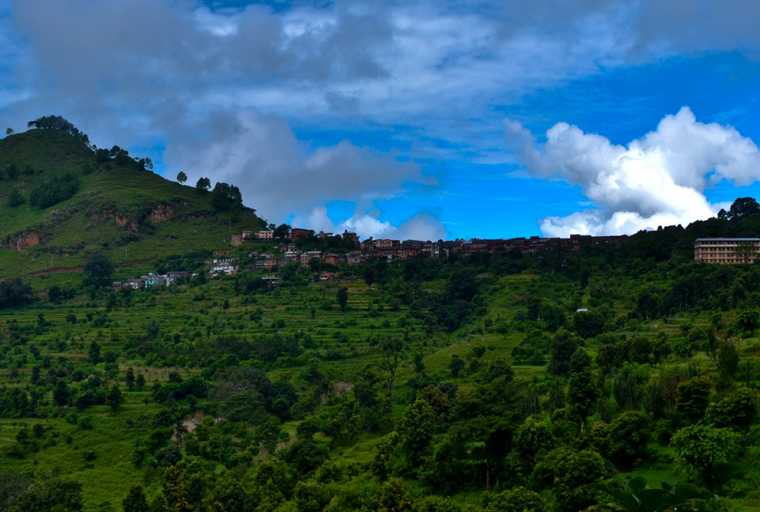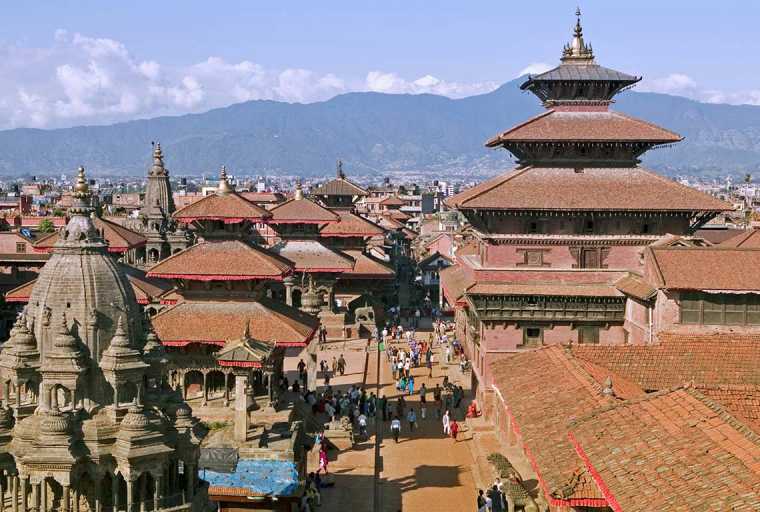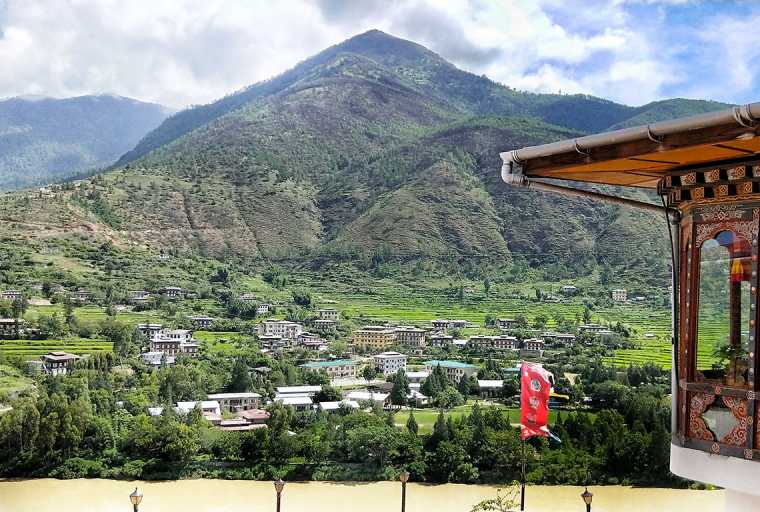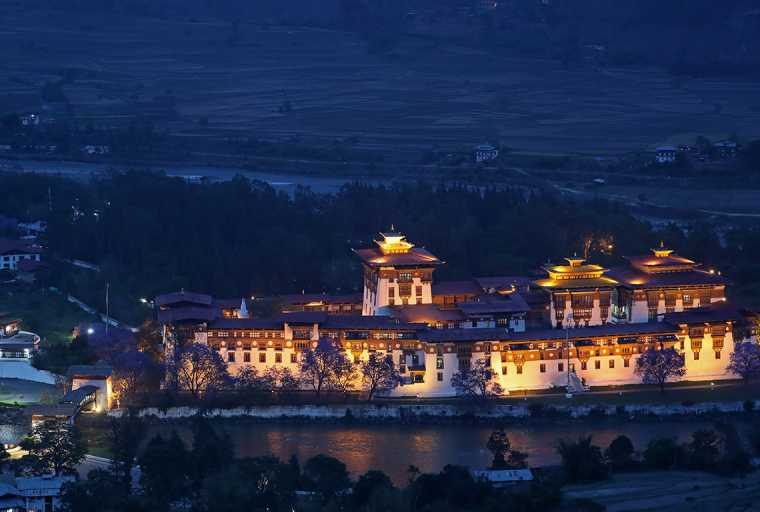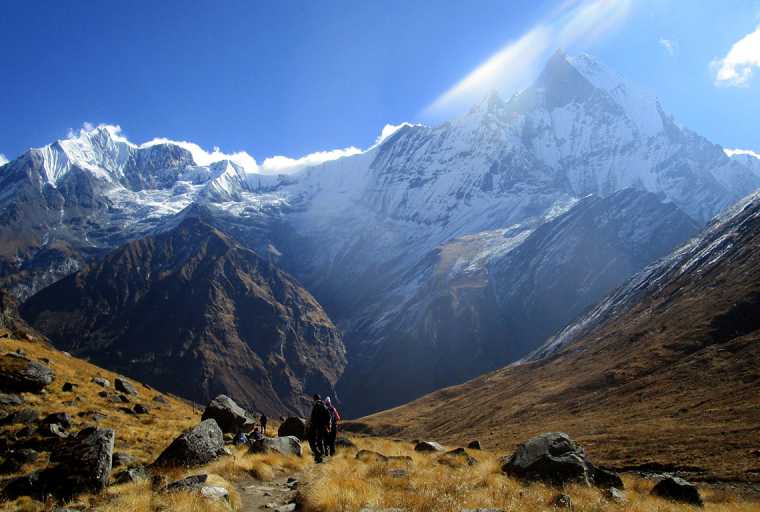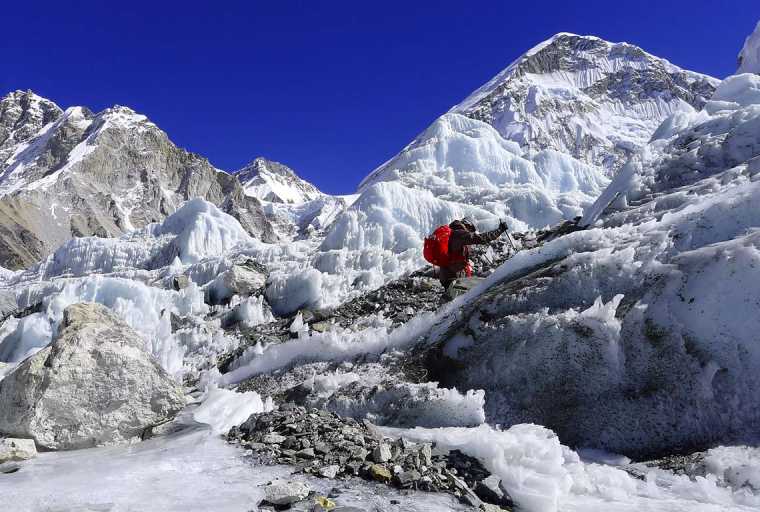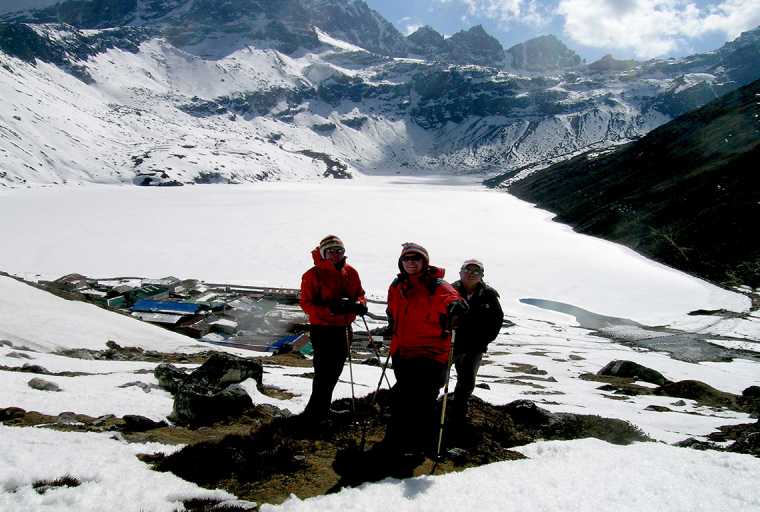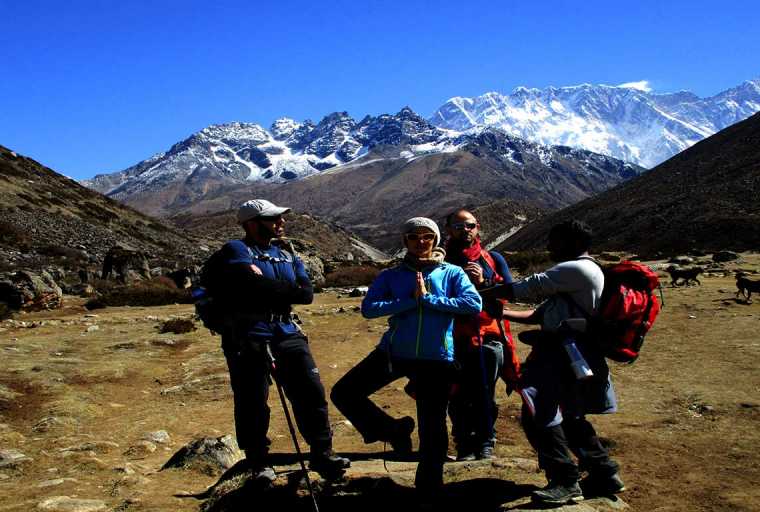Nepal Travel Requirements and Restrictions
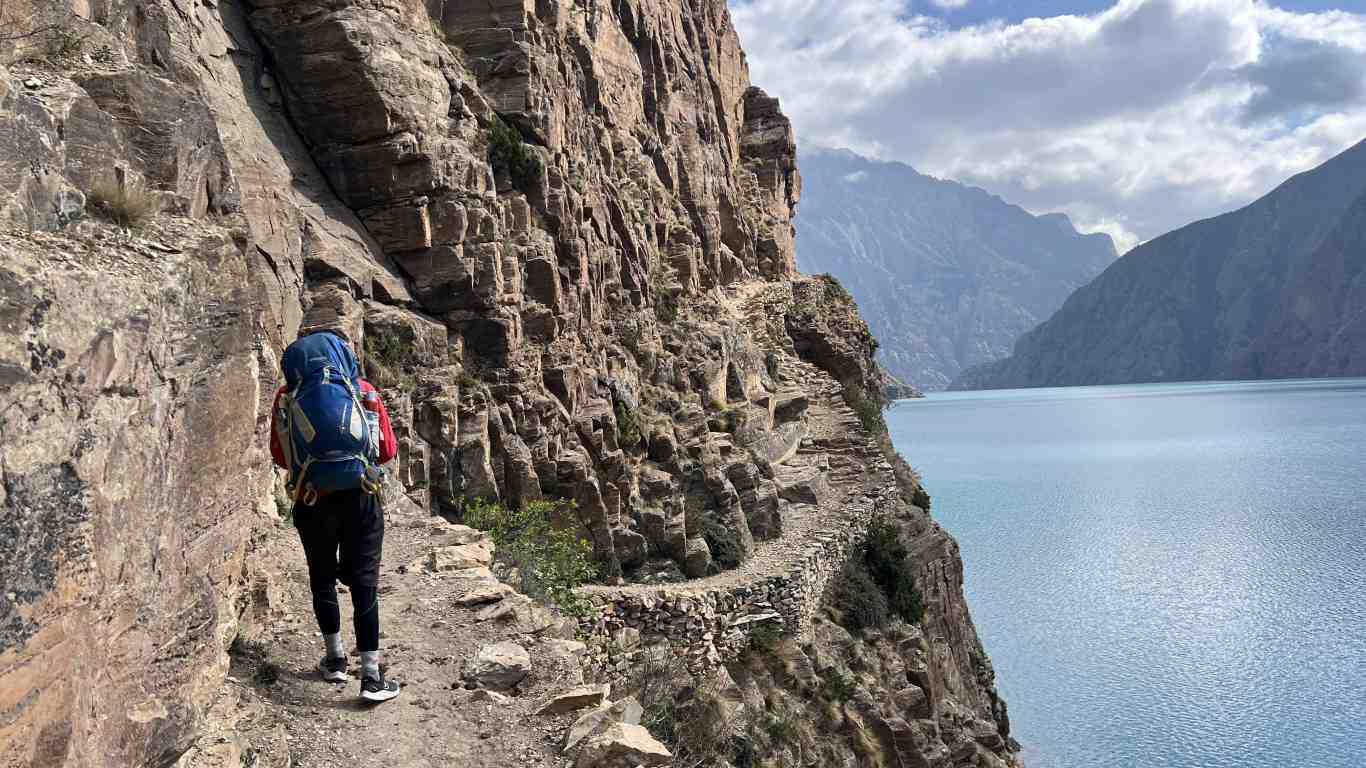
Nepal is a captivating travel destination that offers a unique fusion of natural beauty, cultural heritage, and adventure. Nepal has something to offer every traveler, from the towering peaks of the Himalayas, including Mt. Everest, to ancient temples, lush valleys, and diverse wildlife.
However, like many countries worldwide, Nepal has implemented specific travel requirements and restrictions to ensure the safety and well-being of its visitors. Knowing the travel requirements and guidelines is crucial to ensure a smooth and hassle-free trip.
Travelers must stay informed about visa regulations, health and safety precautions, and any specific entry requirements imposed by the Nepalese government.
This article will provide essential information on Nepal's travel requirements and restrictions, enabling you to plan your journey effectively.
Visa and Entry Requirements
When planning a trip to Nepal, knowing the general visa requirements for entry into the country is essential. To enter Nepal, most visitors need a valid passport with at least six months of validity and a visa.
Visa-on-Arrival and E-Visa Availability
Nepal offers visa-on-arrival for citizens of most countries at Tribhuvan International Airport (Kathmandu) and other designated entry points. Travelers can obtain a visa on arrival by presenting a valid passport, a completed visa application form, and the required fee in US dollars or other major currencies. If it is convenient for the travelers, then they can also obtain Nepal Travel Visa from their designated consular office or embassy.
Likewise, Nepal doesn’t have a provision for E-Visa. But, travelers can fill up an online form from the official Nepal Immigration website before traveling. This process allows travelers to receive their visa approval online, which can be presented upon arrival.
Visa Extensions and Validity Period
Travelers can extend their visa duration in Nepal if they wish to stay longer than the initial visa period. Visa extensions are possible at the Department of Immigration in Kathmandu and certain immigration offices nationwide. To avoid complications, applying for a visa extension well before the current visa expires is advisable.
Moreover, the standard tourist visa for Nepal is typically valid for 15, 30, or 90 days. However, travelers must check the specific visa validity and conditions based on nationality.
Entry Requirements for Different Nationalities
Some nationalities, especially from countries with limited diplomatic relations with Nepal, may need to apply for a visa through the Nepalese embassy or consulate in their home country before traveling.
Likewise, it is essential to verify visa requirements specific to your nationality. Latest updates from the official Nepal immigration website or consult with the Nepalese embassy in your country before planning your trip.
Further, for the most up-to-date information, follow this website: https://www.immigration.gov.np/page/tourist-visa
Important Notes: Visa and immigration rules are subject to change. It is crucial to verify the latest requirements before your travel to Nepal. For the most accurate information, always refer to official sources such as the Nepal Immigration website or consult with the Nepalese embassy in your home country.
Travel Insurance and Health Coverage for Nepal Travel
Travel Insurance Requirements
Travel insurance is highly recommended for all travelers planning a trip to Nepal. While not mandatory for entry, having extensive travel insurance can offer reassurance and financial security in unforeseen situations.
Further, travel insurance should cover various aspects of your trip. It must include trip cancellations, delays, lost or stolen baggage, and medical emergencies and evacuation. It is crucial to carefully review the insurance policy to ensure it meets your travel needs.
Coverage for Medical Emergencies and Evacuation
One of Nepal's essential aspects of travel insurance is medical emergency coverage. This should include expenses related to medical treatment, hospitalization, and prescription medications, in case you fall sick or encounter an injury during your trip.
Additionally, it is essential to check if your travel insurance policy provides coverage for medical evacuations. It can be useful in remote areas of Nepal where advanced medical facilities may not be readily available.
For trekkers venturing into high-altitude regions in Nepal, it is critical to ensure that your travel insurance policy covers helicopter evacuation, especially if trekking is above 4,000 meters. Helicopter evacuations can become necessary in severe altitude sickness or other life-threatening medical emergencies where immediate medical attention is crucial.
Insurance Validity and Verification
Before purchasing travel insurance, ensure that the policy's coverage duration aligns with the length of your planned stay in Nepal. Some travel insurance policies have maximum trip duration limits. So, verify that your policy covers your entire visit period.
When traveling to Nepal, keep a printed or digital copy of your travel insurance policy. Sharing these details with a family member or friend in your home country is advisable for easy reference during emergencies.
While travel insurance is crucial, it should not replace basic preventive measures. You should follow all health and safety guidelines, including getting necessary vaccinations and taking precautions against common health risks in Nepal.
Additionally, remember that the travel insurance requirements and coverage may vary among insurance providers. Therefore, compare policies to choose the best one for your needs and travel plan.
Local Travel Restrictions
While planning your trip to Nepal, it is crucial to be aware of the possibility of local travel restrictions in specific regions. Nepal is a diverse country with varying landscapes, and each part may have guidelines and regulations.
Certain regions in Nepal, particularly those close to international borders or areas with political or security concerns, may restrict travel or require special permits. These restrictions ensure visitors' and local communities' safety and security.
To have a smooth trip, it is crucial to research and understand the specific regions you plan to visit. This includes checking for any travel advisories or warnings issued by your country's embassy in Nepal. They provide valuable information regarding areas with potential risks or travel restrictions.
Furthermore, it is recommended to check local guidelines and regulations from reputable travel agencies or local authorities in Nepal. These sources will have up-to-date information on any specific permits required for certain regions or any temporary travel restrictions in place. Staying informed and adhering to these guidelines ensures a respectful and safe travel experience.
By researching the local travel restrictions, you can plan your itinerary accordingly and make informed decisions about the regions you wish to explore. This will help you have a smoother journey and avoid unexpected complications during your trip.
Trekking and Mountaineering
Nepal is renowned worldwide as a top destination for trekking and mountaineering adventures. However, it is crucial to consider Nepal's travel restrictions and requirements when planning such activities. Here's what you need to know:
Permits
Trekking in Nepal often requires obtaining permits for specific regions or trails. Popular treks like the Everest Base Camp, Annapurna Circuit, and Langtang Valley require trekking permits.
Similarly, you will need mountaineering permits if you aspire to summit iconic peaks such as Everest or Annapurna. Ensure you research and obtain the necessary permits in advance. These permits help manage visitor flow and ensure the safety of trekkers and climbers.
Local Regulations
Nepal has local regulations to preserve its natural environment and promote sustainable tourism practices. It is vital to adhere to these regulations while trekking or mountaineering. Respect designated trails, follow camping guidelines, and carry out any waste you generate.
Additionally, respect local customs, traditions, and sacred sites. By being mindful of local regulations, you contribute to preserving Nepal's pristine landscapes and cultural heritage.
Equipment and Safety
When engaging in trekking or mountaineering activities in Nepal, it is essential to have the appropriate equipment and prioritize safety. Bring sturdy trekking boots, proper clothing for various weather conditions, sleeping bags, trekking poles, and other necessary gear. Adequate preparation and equipment help ensure your safety and comfort throughout the journey.
Experienced Guides or Trekking Agencies
Engaging the services of experienced guides or reputable trekking agencies is highly recommended in Nepal. They know the routes, local conditions, and safety measures in-depth.
Experienced guides can assist you with obtaining permits, providing guidance on equipment, arranging accommodations, and navigating any unforeseen challenges. They are pivotal in ensuring a safe and enjoyable trekking or mountaineering experience.
Given Nepal's travel restrictions and requirements, it is crucial to plan your trekking or mountaineering adventure accordingly. Stay updated on the latest information by checking with local authorities or reputable travel agencies. They can provide valuable insights into specific guidelines, permit procedures, and any temporary restrictions imposed in certain regions.
Traveling with Special Considerations in Nepal
Traveling with Children: Documentation and Permissions
When traveling to Nepal with children, parents or guardians should ensure each child has a valid passport.
It is essential to check the specific entry requirements for children from your home country and Nepal to ensure a problem-free travel experience. Contacting the Nepalese embassy can clarify any additional permissions or documentation needed for traveling with minors.
Traveling with Pets: Pet Entry Requirements
Special entry requirements must be met if you plan to travel to Nepal with your pets. Nepal has regulations regarding the bringing of pets to prevent the spread of diseases.
Generally, you need a valid health certificate issued by a certified veterinarian within a specific time frame before your travel. Moreover, pets should have up-to-date vaccinations, including rabies.
To understand pet entry requirements and procedures, you must check with the Nepalese embassy in your home country.
Special Assistance for Elderly or Differently-abled Travelers
Nepal is a beautiful country with diverse landscapes. However, it can present challenges for elderly or differently-abled travelers.
If you or someone you are traveling with has unique needs. It is advisable to plan and make the necessary arrangements. This includes choosing accessible accommodations, transportation options, and activities that cater to specific requirements.
Inform your travel agency or tour operator about any special considerations or requirements so that they can arrange suitable service and accommodation tailored to your needs.
Medical facilities in major cities like Kathmandu and Pokhara are equipped to handle various health conditions. However, for remote trekking areas, it's essential to assess the suitability of the terrain and consult with medical professionals before planning your trip.
Customs and Import Regulations for Nepal Travel
Restricted and Prohibited Items
Nepal has strict regulations on bringing certain items into the country. Prohibited items include narcotics, illegal drugs, firearms, ammunition, and explosives.
Travelers are also restricted from importing items of cultural and religious significance, such as antiques and religious artifacts. Travelers must obtain the necessary permits from the Department of Archaeology.
It is essential to be aware of the restricted and prohibited items to avoid legal issues or confiscation at customs checkpoints.
Duty-free Allowance and Declarations
Travelers can bring a limited quantity of duty-free items into Nepal. These allowances may include personal belongings and electronics. Travelers can also get a reasonable amount of tobacco and alcohol products for personal use.
For items exceeding the duty-free limits, travelers must declare them at customs upon entry. Failure to declare goods that exceed the allowances can result in fines or confiscation.
Safety and Security Measures for Nepal Travel
While Nepal is generally considered a safe destination for travelers, it is essential to exercise basic safety precautions. Avoid displaying valuable items in public, be cautious with your belongings, and use hotel safes when available.
Stay in well-established and reputable accommodations, especially in remote areas. Always lock your hotel room and use reliable transportation services.
Likewise, if you plan to trek or hike in the mountains, hire experienced and licensed guides from reputable agencies. They can provide valuable assistance and ensure your safety during the journey.
Emergency Contact Information
Before your trip, note important emergency contact information for Nepal. The national emergency number is 100 for police assistance, 101 for fire services, and 102 for medical emergencies.
Save the contact details of your embassy or consulate in Nepal, so you can quickly seek assistance in case of any emergencies or issues during your stay.
Traveling During Health Emergencies in Nepal
Upon arrival in Nepal during health emergencies, all travelers must complete a health declaration form. The form will require travelers to provide travel history and health status details. This information is vital for contact tracing and assessing potential health risks.
Travel Restrictions Based on COVID-19 Case Numbers
As of May 26, 2023, travelers entering Nepal from abroad by air or land no longer need to submit a COVID-19 vaccination certificate. This requirement has been waived until further notice. Also, there is no longer a mandate for a negative PCR test report to enter the country.
However, refer to official sources to get the most current and accurate information regarding COVID-19 travel guidelines in Nepal. Check the Nepalese government websites, the World Health Organization (WHO), and the Centers for Disease Control and Prevention (CDC) before planning a trip.
Protocols for Traveling with Health Conditions
Travelers with pre-existing health conditions should bring medical documents, prescriptions, and ample medical supplies. Consult Nepalese health authorities or the embassy for specific guidelines and requirements for traveling with health conditions.
Travel Advisory and Updates
Checking Government Travel Advisories
Before traveling to Nepal, check your home country's official government travel advisories. These advisories provide valuable information on safety, security, health risks, and any travel restrictions related to Nepal.
Stay Informed About Changing Regulations
Keep yourself updated on the latest travel restrictions and requirements for Nepal. Regulations can change rapidly, especially during health emergencies or other unforeseen events. Regularly check official sources, such as the Nepalese government websites and reputable travel news outlets, for any updates or changes to travel regulations.
Contacting Embassies and Consulates in Nepal
Contact your embassy or consulate for assistance if you encounter any issues or emergencies during your Nepal travel. They can provide support, guidance, and consular services if needed.
Register your travel plans with your embassy or consulate before your trip. This ensures they can contact you in case of emergencies or critical updates during your stay in Nepal.
Final Words
In conclusion, navigating Nepal's travel requirements and restrictions is essential for a successful trip. From visa applications to adhering to COVID-19 guidelines, being well-prepared is crucial.
On top of that, remember to check official sources regularly for the latest updates on entry protocols and safety measures. Respecting local laws and cultural sensitivities adds to smooth and enjoyable experiences.
Travelers with specific needs should consult the Nepalese embassy for personalized guidance. With thorough planning and a proactive approach exploring Nepal's vibrant culture, breathtaking landscapes, and awe-inspiring adventures becomes a memorable journey.
If you have any questions, feel free to let us know, and we will get back to you promptly. Happy travels to Nepal, respecting all its travel requirements and restrictions!
Nepal Travel Requirements and Restrictions
- Visa and Entry Requirements
- Travel Insurance and Health Coverage for Nepal Travel
- Local Travel Restrictions
- Trekking and Mountaineering
- Traveling with Special Considerations in Nepal
- Customs and Import Regulations for Nepal Travel
- Safety and Security Measures for Nepal Travel
- Traveling During Health Emergencies in Nepal
- Travel Advisory and Updates
- Final Words
Popular Tours
Popular Treks
Nepal Travel Requirements and Restrictions
- Visa and Entry Requirements
- Travel Insurance and Health Coverage for Nepal Travel
- Local Travel Restrictions
- Trekking and Mountaineering
- Traveling with Special Considerations in Nepal
- Customs and Import Regulations for Nepal Travel
- Safety and Security Measures for Nepal Travel
- Traveling During Health Emergencies in Nepal
- Travel Advisory and Updates
- Final Words

